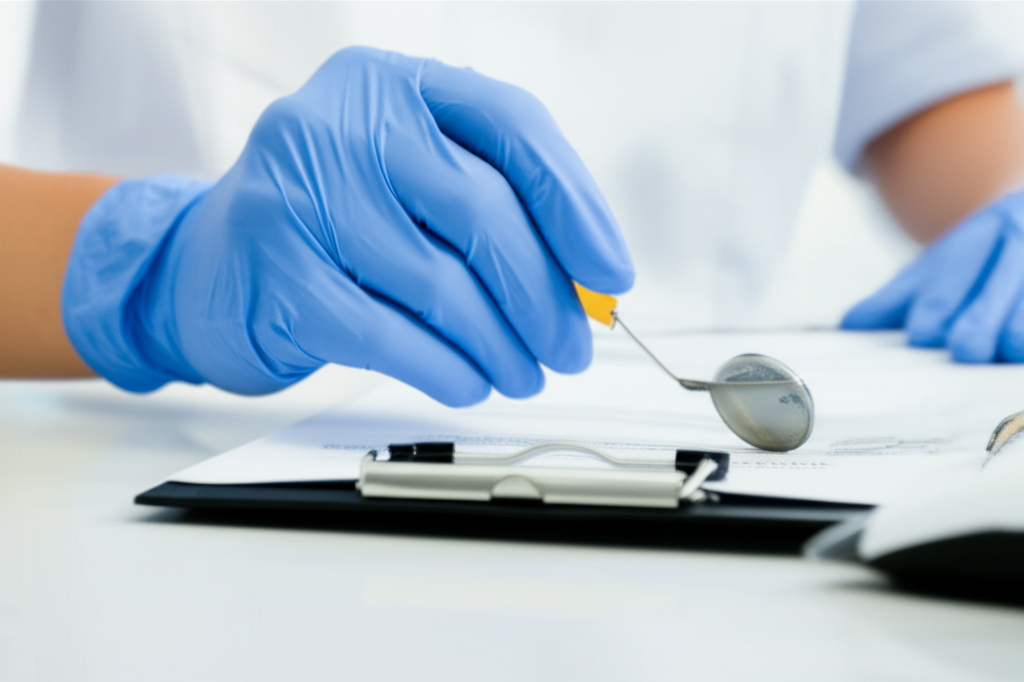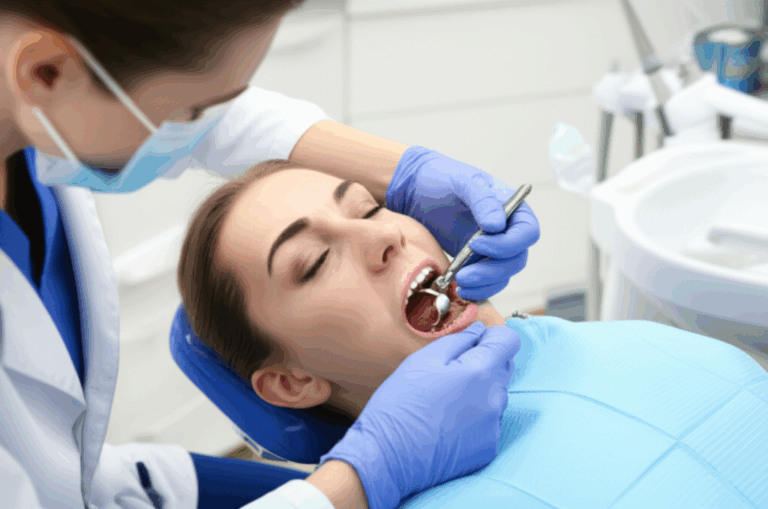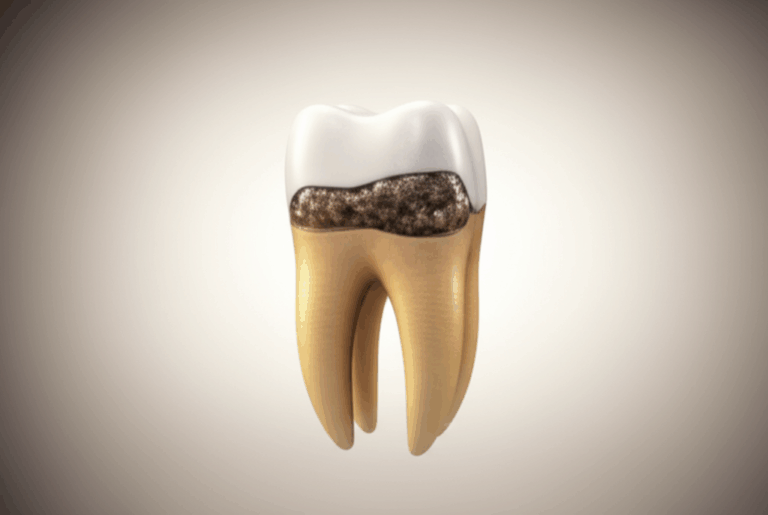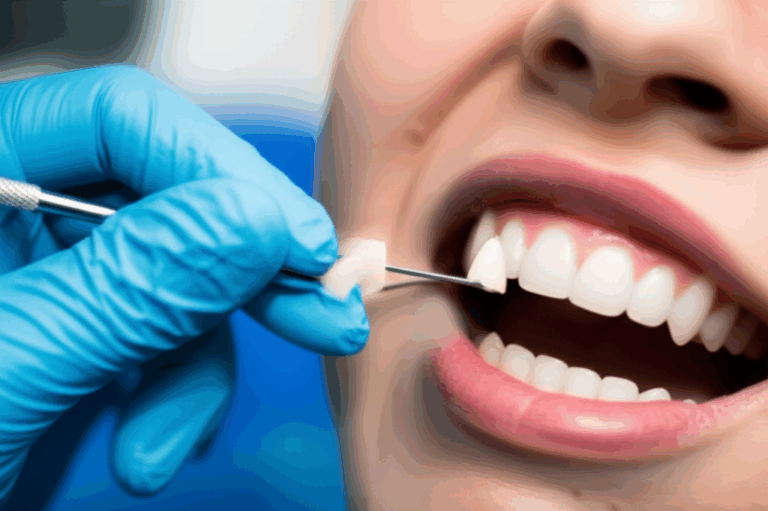
Can a Dentist Give You a Prescription? Understanding Their Prescribing Authority for Oral Health
That sudden, throbbing pain in your jaw. The pressure that makes it hard to think about anything else. Or maybe it’s that nervous feeling as you sit in the dentist’s waiting room. In those moments, you might ask: Can a dentist give you a prescription to help with pain, treat an infection, or help you get through the visit without being scared? You’re not alone in wondering. In fact, millions of people ask these questions every year.
Let’s clear up the confusion. Dentists don’t just fix teeth—they’re trained professionals who help keep your mouth and your whole body healthier. But sometimes people still ask: “Do I need to see my doctor to get antibiotics for a tooth infection?” “Is a dentist’s prescription ‘real’—will the pharmacy accept it?” “What drugs can a dentist actually give me?” If you’ve thought about these things, keep reading.
In This Article
- The Simple Answer: Can Your Dentist Legally Prescribe Medication?
- How Dental Prescriptions Work (and What Makes Them Different)
- What Medications Can a Dentist Prescribe?
- Common Situations Where Your Dentist May Write a Prescription
- Your Responsibilities: Getting the Most Out of Your Dental Medication
- Prescription Process: What Happens at the Pharmacy?
- Dentist vs. Doctor: Who Should You See?
- Frequently Asked Questions About Dentist Prescriptions
- Key Takeaways and Next Steps for a Healthier Smile
The Simple Answer: Can Your Dentist Legally Prescribe Medication?
Yes, a licensed dentist can really give you a prescription—and it’s just as legal and official as one from any doctor.
Here’s the bottom line: In every state, dentists can write prescriptions for problems connected to oral health. That means everything from antibiotics for infections, to painkillers after treatment, even medicine to help you relax if you’re nervous about dental work.
Why do dentists have this right? It’s because dentistry is about a lot more than just cleaning teeth. Dentists go through lots of school and training, including learning about medicines, handling medical problems, and diagnosing diseases in the mouth. They don’t just fill cavities—they also treat infections, ease pain, and help you feel better.
So, when your dentist writes you a prescription, you can be sure the pharmacy will fill it just like one from a regular doctor.
How Dental Prescriptions Work (and What Makes Them Different)
Now that we know dentists can prescribe medicine, let’s talk about how it works. While dentists can write prescriptions like doctors, there are clear rules about what they can do.
The Legal Side
- Licensed to Practice: Only dentists with a valid license in your state can prescribe drugs.
- Scope of Practice: They can only prescribe medicine for things related to your teeth, mouth, jaw, or sometimes the head and neck. If you have a problem somewhere else—like your arm or your blood pressure—they’ll send you to your doctor.
- Strong Painkillers: If you need strong pain medicine (like codeine or hydrocodone), dentists with special licenses can give you a prescription, but usually only for a short time and only if it’s because of dental pain. Laws make it hard to get too much of these drugs.
- Prescription Monitoring: In many places, dentists have to check certain databases to make sure people aren’t getting too much medicine or shopping around for extra pain pills.
Schooling and Safety
You wouldn’t trust just anyone to give you medication—and the law doesn’t either. Dentists learn how to match the right medicine with your problem. They know how drugs can affect your other health issues, allergies, or other pills you’re taking.
Helpful Tip: Always tell your dentist about your full health history. This helps them give you medicine that’s safe for you.
What Medications Can a Dentist Prescribe?
Dentists can help with a lot more than just cleaning or filling teeth. Here’s what they might give you a prescription for:
Antibiotics
Maybe you have a swollen cheek, bad pain, and your dentist finds an abscess. Dentists can—and often do—give you antibiotics to fight bacteria in your mouth or jaw.
Common Antibiotics:
- Amoxicillin
- Clindamycin (for people allergic to penicillin)
- Metronidazole
- Penicillin VK
Important: Dentists only give antibiotics when you really have a bacterial infection—not just for sore teeth or viral problems. Using antibiotics too much can make them stop working in the future.
Pain Killers
After pulling a tooth or other dental work, it can hurt. Dentists can give you ways to handle the pain.
Regular Pain Medicine:
- Ibuprofen (Advil, Motrin), sometimes in big doses like 600-800 mg
- Acetaminophen (Tylenol)
- Naproxen (Aleve)
Stronger Pain Pills (Only for Bad Pain):
- Hydrocodone/Acetaminophen (Vicodin, Norco)
- Codeine
- Oxycodone/Acetaminophen (Percocet), but only in rare cases
Most of the time, dentists want you to try non-narcotic painkillers first, because they work well and are safer.
Anti-Anxiety Medications
Being scared of the dentist is pretty common. Dentists can give you medicine to help you relax during hard or scary visits.
Common choices:
- Diazepam (Valium)
- Triazolam (Halcion)
These are usually taken right before your appointment, and you’ll need someone to give you a ride home.
Anti-Inflammatory Drugs
For swelling after dental surgery or a deep clean:
- High-dose Ibuprofen or Naproxen
- Rarely, a short round of steroids
Virus and Fungal Medicines
If you have:
- Cold sores: Dentist might give you Acyclovir.
- Oral thrush: Dentist can give you Nystatin, a rinse or lozenge.
Other Things Dentists Can Prescribe
- High-strength fluoride toothpaste or gels to prevent cavities
- Chlorhexidine mouthwash, to help with gum disease or after an operation
- Muscle relaxers for jaw or TMJ pain
Dentists choose what’s right for you—always trying to keep you safe.
Common Situations Where Your Dentist May Write a Prescription
Not sure when you might get a prescription from the dentist? Here are the usual times:
Dental Infections
- Abscessed tooth
- Severe gum infection
- Swelling that isn’t going away
Dentists will check if you have an infection, sometimes take an X-ray, then give you antibiotics if you need them.
Pain After Dental Work
- Getting a tooth pulled
- Root canal
- Gum surgery
- Wisdom tooth removal
Managing pain helps you heal and get back to feeling normal. Regular pain killers come first; stronger ones are for special cases.
Ongoing Problems
- Jaw pain (TMJ)
- Frequent cold sores
- Repeating fungal infections
In these cases, you might need medicine for a longer time.
Before Some Procedures
- Preventive antibiotics: Some people with certain heart conditions or artificial joints need antibiotics before dental procedures. Your dentist will check on this.
Anxiety or Sedation for Dental Work
If you need a lot of work done, or you’re very afraid, dentists might give you sedatives to help you relax.
Sores in Your Mouth
For ulcers, thrush, or cold sores, you’ll likely get a mouthwash or special lotion.
Your Responsibilities: Getting the Most Out of Your Dental Medication
Let’s look at what you should do after you get medicine from your dentist.
1. Tell Your Dentist Everything About Your Health
Even if you think you’re just there for your teeth, the medicine your dentist gives you can affect the rest of your body. Always share:
- Allergies
- List of all your medicines (even over-the-counter)
- Any health problems (heart, liver, kidneys, pregnancy, diabetes, etc.)
2. Follow Directions Exactly
If the label says take it three times a day, do it. Don’t double up if you skip a dose, and don’t stop antibiotics early—even if you feel better. You need to finish them to fix the infection.
3. Ask Questions
Dentists and pharmacists want to help you. Ask about side effects or if you don’t understand how to take your medicine.
Taking your meds right keeps you safe and helps you heal faster.
Prescription Process: What Happens at the Pharmacy?
What can you expect at the pharmacy? Don’t worry—your dentist’s prescription is good to go.
1. Is It Okay to Use?
- Prescriptions from a licensed dentist are legal and any pharmacy will accept them for mouth-related problems.
- For strong painkillers, the pharmacist might call the dentist before filling it, just to be sure. This is normal.
2. Cost and Insurance
- Most dental prescriptions are covered by your health or dental insurance, especially for infections or pain.
- If you’re not sure, your dentist’s office or your insurance can help explain it.
3. Refills
- Dentists mostly give just enough medicine for your current problem. Refills are rare, especially for strong pain medicines, and might need another visit.
Tip: Keep your prescription info just in case you need help or have a bad reaction.
Dentist vs. Doctor: Who Should You See for Medications?
It can be confusing. You wake up with a swollen mouth or a bad toothache. Should you see your dentist or your regular doctor?
See Your Dentist If:
- Your problem is in your mouth, gums, teeth, or jaw
- You have sudden dental pain, swelling, or broken teeth
- You need help with dental fear
See Your Doctor If:
- The problem is outside your mouth (like a rash or swelling far from your jaw)
- You have long-term pain that dental work didn’t fix
- You need help for bigger health issues
Not sure? Give your dentist’s office a call and they’ll point you in the right direction.
Frequently Asked Questions About Dentist Prescriptions
Can a dentist give antibiotics over the phone or online?
Sometimes, for patients they know already, a dentist might phone in a prescription if there’s an emergency and you can’t come in. But most of the time, they want to see you to decide what’s safe.
Are dentist prescriptions ‘real’ and legal?
Yes! As long as the dentist is treating a dental issue, their prescription is as good as one from your doctor. Pharmacies fill them all the time.
Can dentists give strong painkillers?
Yes, but only for short-term dental pain—like after pulling a tooth—and usually for just a few days. They have to have special permission, and they try to use safer painkillers first.
Will insurance pay for medicine from a dentist?
Usually, antibiotics, painkillers, and medicine to help with dental anxiety are covered by insurance, but it depends on your plan. Ask your provider if you aren’t sure.
Can I get a prescription for a toothache without seeing the dentist?
It’s not common. A responsible dentist wants to check you first, or at least talk to you, to figure out what’s wrong before giving medicine.
What if my dentist won’t give me antibiotics for tooth pain?
Antibiotics only work for infections, not just for pain. If your dentist says you don’t need them, they’re trying to keep you safe. You can always ask them to explain why.
Key Takeaways and Next Steps for a Healthier Smile
Let’s sum it up:
- Dentists can write prescriptions for problems with your mouth, teeth, and jaw—like antibiotics, pain medicine, sedatives, and more.
- Your prescription from a dentist is legal and accepted at any pharmacy.
- Always tell your dentist your health history and allergies so they can give you the safest care.
- Follow instructions exactly—finish all antibiotics and never share your medicine.
- See your dentist for mouth, tooth, gum, or jaw problems, and your doctor for issues elsewhere or long-lasting illness.
- Want to know more about new dental options? Check out digital dental lab services or learn about the perks of a china dental lab.
If you’re hurting, worried about infection, or too nervous to sleep before a dental visit, call your dentist. They’re able—and allowed—to help you feel better and will guide you to the best care. You deserve to be comfortable and confident about your health. Now you know who to ask.
Sources: American Dental Association (ADA), Centers for Disease Control and Prevention (CDC), state dental practice acts, and studies about what dentists can prescribe.








